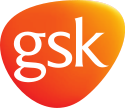

The World Health Organization (WHO) has recommended GlaxoSmithKline (GSK) company’s RTS, S malaria vaccine for children who are prone to developing this disease, especially those living in sub-Sahara, African countries. It is in these countries that malaria has moderate to high high rate of transmission among children. The RTS, S is the first clinically proven vaccine that has significantly reduced the incidence of malaria in children. It took more than 30 years of intense research to develop this vaccine. The team of researchers worked at GSK and PATH companies.
GSK is working with PATH and other leading NGOs in Kenya, Malawi, and Ghana, regions with moderate to high rate of malaria transmission. In these African countries, the company is developing programs to provide easy access to RTS,S vaccine on a long term basis. For the pilot project, GSK would be donating as much as 10 million RTS,S doses and has planned to provide upto 15 million doses each year, following its widespread recommendation among the masses. Moreover, GSK is going to do technology transfer to Bharat Biotech company in India. This company would also be producing antigens on a long-term basis.
The recommendation by WHO is now considered an important milestone in the success of the vaccine RTS,S. In the August issue of New England Journal of Medicine, a key finding about the vaccine was published. The finding was based on a study conducted on 6,000 children in London, UK. The study was conducted by London School of Hygiene and Tropical Medicine. In this study, the control group received seasonal doses of antimalarial drugs under the Season Malaria Chemoprevention (SMC) program. The experimental group received SMC and RTS,S vaccine. The study was carried out for three years. The incidence of malaria and hospitalization due to malaria were reduced by as much as 70% in the experimental group.
The pilot program of Malaria vaccine was launched in the year 2019. In the three African countries of Kenya, Malawi, and Ghana, the antimalarial vaccination program was introduced successfully. These countries have moderate to high rates of transmission of malaria. More than 800,00 children were vaccinated with at least one dose. Presently, GSK team of researchers have dispersed more than 2.3 million doses of the vaccine. They have even emphasized on delivering the vaccine through the conventional immunization program for children.

